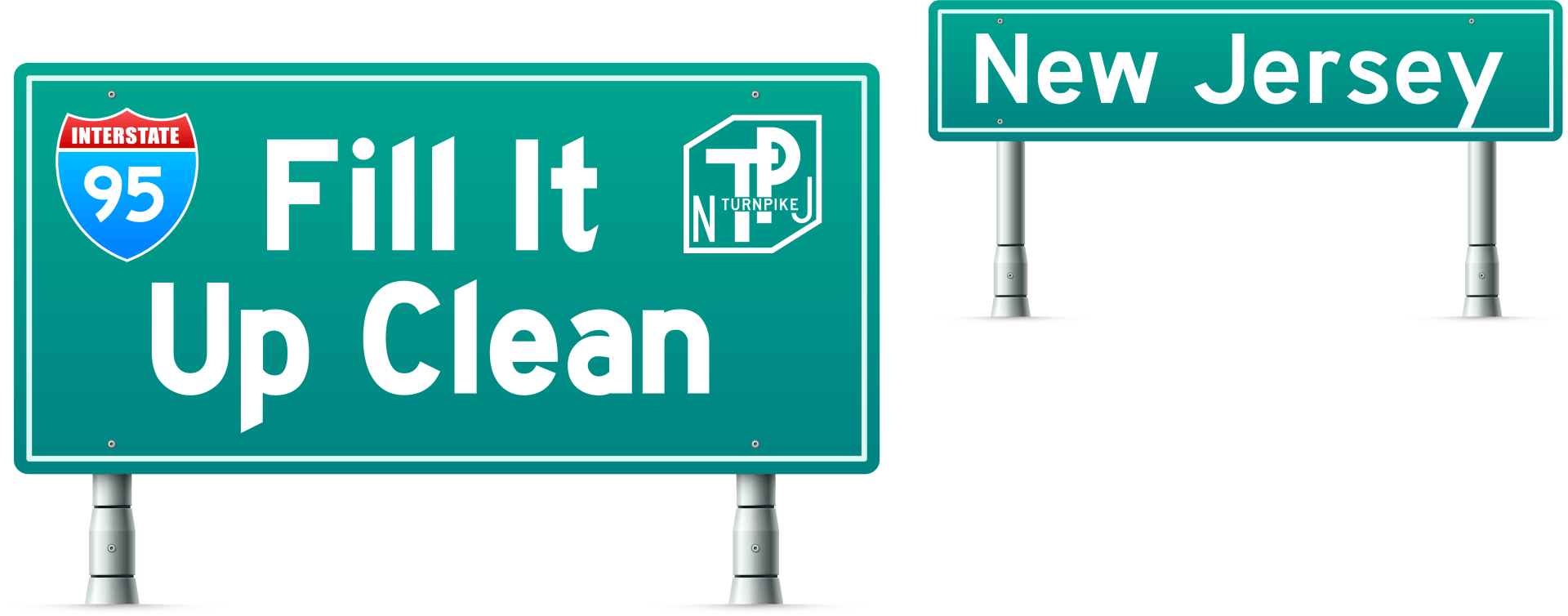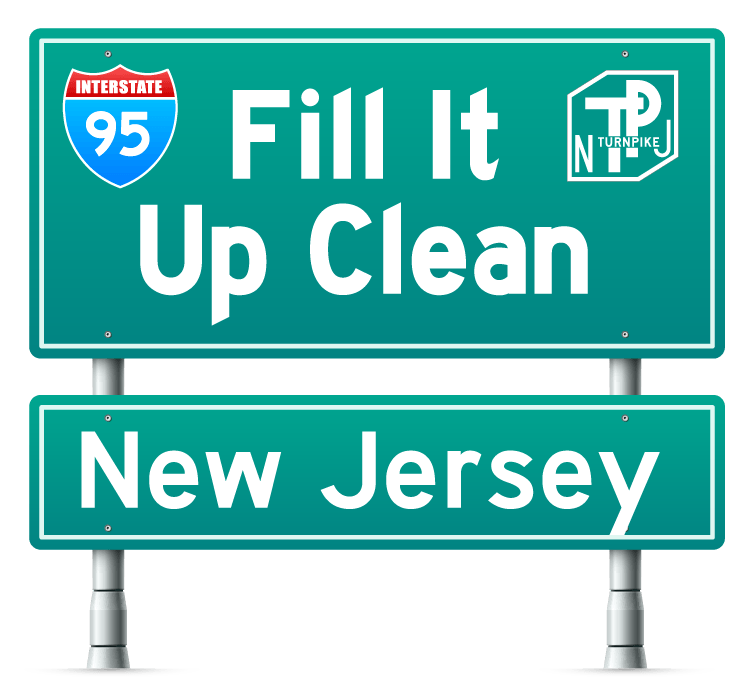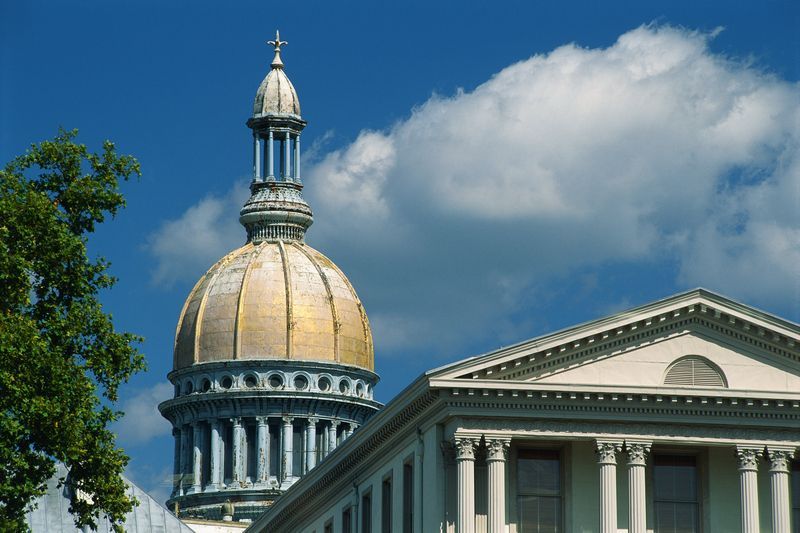Ready To Drive The Zero-Emission Highway?
New Jersey Aspires To Clean Car Future But At What Cost?

In the 20th Century, we were promised that by now we'd have flying cars and personal jetpacks that propelled us through space. Today, it's zero-emission vehicles (ZEVs) by 2035. It's an ambitious goal that'll bring many wonderful benefits with it but will require lots of blood, sweat, and tears to achieve.
In June 2023, New Jersey Governor Phil Murphy proposed the so-called Advanced Clean Cars II Rule, which requires automakers to start selling an increasing number of zero-emission vehicles in 2027 so that by 2035 100% of all new cars and trucks are ZEVs.
He described his proposal as a "commitment to every New Jersey family and the air they breathe, air that will be cleaner and healthier tomorrow thanks to the steps we’re taking to reduce emissions today."
But currently the only motor vehicle sold on the commercial market that comes anywhere close to zero-emissions is the electric vehicle. By 2035, there may be hydrogen-powered cars and trucks on the market as well but that's still a way off.
From 2011 to 2022, the number of battery electric vehicles (BEV) registered on New Jersey roads soared from 40 to 68,414. In 2023, there are 95,097 BEVs registered statewide. In 2022, 8% of nearly 458,000 new cars or trucks sold run on electricity or around 36,640.
Biz Leaders Say Clean Car Plan Bad For Less Affluent
New Jersey business and industry organizations are charged up over the costs, arguing the clean car plan will put an "enormous financial burden" on the state's economy and disproportionately harm low- and middle-class New Jerseyans.
"We share the Governor’s desire to reduce carbon emissions, but the significant disadvantages of this proposal greatly outweigh any potential benefits," New Jersey Business and Industry Association argues in a letter to state legislature leaders.
It would also make motor vehicles unaffordable for less affluent residents and worsen income inequality.
"By denying thousands of New Jerseyans access to an affordable vehicle, this mandate would be crippling to our communities, businesses, economy, and labor workforce, and would exacerbate income inequality in our state."
ZEVs Only By 2035 Requires Major Upfront Investments
Ramping up New Jersey's infrastructure to accommodate increasingly larger numbers of ZEVs as well as convincing drivers to give up their current cars and trucks earlier than usual, among other challenges, isn't going to be easy.
The Murphy administration hopes to lessen those obstacles through a gradual phase-in by investing millions into charging stations and other infrastructure. There's currently $10 million in the state's recently adopted fiscal year 2024 budget, but with only 1,246 public charging stations as of today in a state with 6 million registered vehicles, it will cost exponentially more to meet the mandate.
Federal incentives up to $7,500 have helped reduce the price gap between EVs and gas-powered vehicles, but at the end of 2022, they cost an average $12,000 more, according to Kelley Blue Book. And as more and more EVs are manufactured and sold, costs will come down as they have with fax machines, smart phones, personal computers, and about every other technological innovation of the past. But it'll still take some time for economies of scale to ramp up.
The real long-term savings of transitioning to electric vehicles lies in fuel costs, up to 60% less, according to a 2020 Consumer Reports study. Then, there's the environmental and health benefits that are predicted to pay off handsomely.
The American Lung Association predicts that transitioning to ZEVs in New Jersey over the next 25-plus years could save up to $44 billion in public health costs and prevent nearly 4,000 premature deaths, almost 93,000 asthma attacks, and 464,000 lost workdays.
"The evidence is clear—acting now to rapidly accelerate the shift to a clean transportation sector will result in a plethora of public health and subsequent economic benefits," a letter to Governor Murphy from more than 100 state medical professionals urges.
Despite all the long-term potential positive benefits, not all New Jerseyans have the economic resources to pitch their gas-powered car or truck for an EV just because it's better for the environment. Some have no choice but to drive their current motor vehicles until the wheels fall off.
Other States Have Clean Car Plans & Clean Fuels
Another option exists today for drivers who want to reduce the pollute in their commute but who can't afford an electric vehicle.
California, Oregon, and Washington have all adopted their own equivalent of New Jersey's Advanced Clean Car II Rules but eased the adoption curve by incentivizing clean fuels that work in all gas-powered and diesel engines produced since 2001.
Under rules known as clean fuel standards, oil companies must reduce the amount of pollution in their gas and diesel or pay credits to companies who produce low-carbon emissions fuel. By no longer allowing oil companies to pass off the cost of their pollution to society, producers of green gas and diesel can compete for market share without one arm tied behind their backs.
As a result, as the supply of renewable fuels increases in these states, drivers can keep their perfectly good gas-powered cars or trucks while reducing their tailpipe emissions by up to 80%.
New Jersey is already on the path to cleaner fuel with roughly 440,000 flex-fuel vehicles operating on E85 and 25,000 on renewable diesel. That's five times the number of registered EVs and plug-in hybrid EVs.
New Jerseyans Can Fight Climate Change With The Vehicle They Own
Industry forecasts predict 45% of new car sales will be EVs by 2035, which will make a significant improvement in our air and water quality. Combined with a lower lifetime operating cost, there are plenty of good reasons to go electric.
Governor Murphy deserves credit for his climate leadership, but it would be even better if there was a plan to reduce emissions faster and include more New Jerseyans in the effort.
More cleaner fuels now reduces the climate curve while the state builds more charging stations, EV prices decrease, and other carbon-free forms of transportation like green hydrogen scale up.
Related Stories:
Governor Murphy Announces Filing of Landmark Advanced Clean Cars II Proposal




